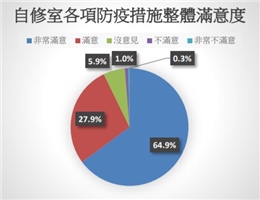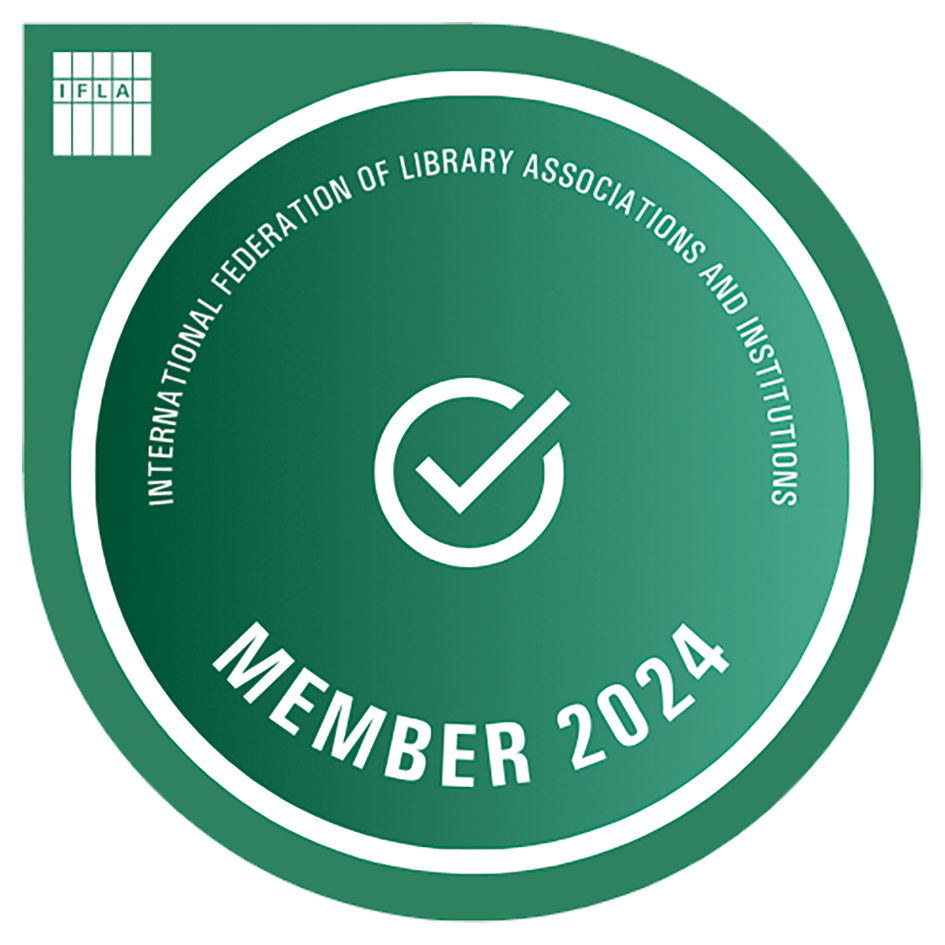News & Events
- 2020-04-16

In early April 2020, National Central Library announced a Satisfaction Survey on COVID-19 Preventative Measures in Study Room at NCL.
The study room at NCL has continued to modify safety measures as the COVID-19 pandemic continues to change. In addition to requiring patrons to swipe their library cards when they enter so that times and names can be accurately recorded, the following preventative measures have also been put in place:
1. Patrons must have their temperatures taken and their hands disinfected with hand sanitizer upon entering;
2. Study room requires patrons have a surgical mask on at all times—those who do not will not be allowed to enter;
3. Before the library opens each day, the cleaning crew will have disinfected the study room and wiped down the chairs and tables with alcohol; a sanitizer machine will be placed at the entrance for patrons to use;
4. The windows on either side of the study room will be opened to allow for better air circulation;
5. Acrylic splash shields have been installed between the 238 seats to reduce the risk of infection via airborne particles;
6. The distance between the seats in the study room was extended: originally nine seats were on each side of a table; that has been adjusted to only three. The tables have also been moved so that there is even more space between the seats.
In an attempt to understand the level of satisfaction patrons are experiencing regarding preventative measures in the study room at NCL, as well as their desires for services, those who visited the study room between March 27-29 were asked to fill out a survey. A total of 800 surveys were issued, with 502 being returned. One was not usable, which brought the total to 501. Survey results are explained as follows:
1. Degree of overall satisfaction towards preventative measures in the study room:
Those who were “Extremely satisfied” accounted for 64.9%; those “Satisfied” 27.9%; “Neutral” 5.9%; “Not satisfied” 1%; “Extremely unsatisfied” was only 0.3%. From this we can see that most patrons approve and support NCL’s preventative measures in the study room, as 92.8% of the respondents were satisfied.
2. Views on some libraries in Taiwan closing or stopping services during the pandemic:
“Neutral” was the top pick with 41.5%; “Do not support” was at 37.7%; “Support” 20%; and only 0.8% not giving a response. Those who did not support closing down libraries stated: “study room is needed,” “preventative measures are good, so there is no need to close down,” and “we should avoid creating inconveniences in life, education, and society.” Those who were in favor stated “the study room is needed, but given the extenuating circumstances if the room is closed, it is understandable” and “government policies can be followed if needed in preventing the pandemic.”
3. Input on availability and services of the study room during the pandemic:
A total of 81% of respondents hoped that NCL would “increase preventative measures but still remain open for the same hours and have the same number of seats in the study room.” 13.6% hoped that “the library would remain open for the same hours, but reduce the number of seats in the study room”; only 1.6% stated they wanted “to keep the library open, shorten hours but keep the same number of seats in the study room”; and just 1.4% hoped that “the library would remain open, but that hours would be shortened and seating in study room lessened.” From this it is apparent that patrons have a strong need to use the study room, that thus hope that the library can stay open by using necessary preventative measures.
In this survey, patrons provided many suggestions and ideas about preventing the spread of COVID-19. In addition, there was a general hope that the library would continue providing services. Future developments in the pandemic and patrons’ needs may require a change in preventative measures and services.
- Resources
- NEWS & Events
- ABOUT NCL
- International Cooperation and Exchange
- Services






